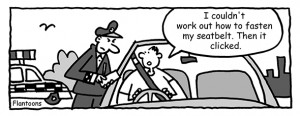https://skypenglish4u.com/wp-content/uploads/2014/10/Screen-Shot-2014-10-24-at-12.27.58-PM-1.png
164
524
Jessica
http://skypenglish4u.com/wp-content/uploads/2016/10/SE4U2-2-4.jpg
Jessica2014-10-24 12:01:072014-10-24 12:01:07AIM, TARGET, GOAL!
https://skypenglish4u.com/wp-content/uploads/2014/10/Screen-Shot-2014-10-24-at-8.34.43-AM-1.png
178
446
Riham
http://skypenglish4u.com/wp-content/uploads/2016/10/SE4U2-2-4.jpg
Riham2014-10-24 08:06:402018-02-13 16:20:40IDIOMS
https://skypenglish4u.com/wp-content/uploads/2014/09/screen-shot-2014-03-10-at-4-41-36-pm-1.png
108
248
Kelsey
http://skypenglish4u.com/wp-content/uploads/2016/10/SE4U2-2-4.jpg
Kelsey2014-09-24 10:54:162014-09-24 10:54:16“THINK”- Phrasal verbs with about, of, and on
https://skypenglish4u.com/wp-content/uploads/2014/09/reduce-1.gif
225
450
Jessica
http://skypenglish4u.com/wp-content/uploads/2016/10/SE4U2-2-4.jpg
Jessica2014-09-05 16:01:092014-09-05 16:01:09Reduce reduce reduce!
https://skypenglish4u.com/wp-content/uploads/2014/07/screen-shot-2014-05-28-at-2-41-30-pm-1.png
341
500
Kelsey
http://skypenglish4u.com/wp-content/uploads/2016/10/SE4U2-2-4.jpg
Kelsey2014-07-24 10:17:082014-07-24 10:17:08“So” or “too”? Know the difference and why it matters!
https://skypenglish4u.com/wp-content/uploads/2014/05/il_fullxfull.131533937-1.jpg
400
600
Jessica
http://skypenglish4u.com/wp-content/uploads/2016/10/SE4U2-2-4.jpg
Jessica2014-05-05 18:40:092014-05-05 18:40:09The 3 best ways to learn new vocabulary
https://skypenglish4u.com/wp-content/uploads/2014/04/whoops_a_daisy-01-1.jpg
1500
1500
Jessica
http://skypenglish4u.com/wp-content/uploads/2016/10/SE4U2-2-4.jpg
Jessica2014-04-28 18:04:512014-04-28 18:04:51Having a ‘whoop’ of a time thinking about ‘whoops a daisy’!
https://skypenglish4u.com/wp-content/uploads/2014/04/click-logo-primary-1.jpg
280
280
Linda
http://skypenglish4u.com/wp-content/uploads/2016/10/SE4U2-2-4.jpg
Linda2014-04-23 16:18:432014-04-23 16:18:43Click
https://skypenglish4u.com/wp-content/uploads/2014/04/marsha_but-1.jpg
267
400
Jessica
http://skypenglish4u.com/wp-content/uploads/2016/10/SE4U2-2-4.jpg
Jessica2014-04-09 16:09:452014-04-09 16:09:45But… synonyms and antonyms…
https://skypenglish4u.com/wp-content/uploads/2014/04/Carl-Icahn-Lectures-Apple-Gambles-Netflix-and-Threatens-eBay-2-1.jpg
352
640
Linda
http://skypenglish4u.com/wp-content/uploads/2016/10/SE4U2-2-4.jpg
Linda2014-04-02 18:27:442014-04-02 18:27:44Learning the eBay “Lingo”
Scroll to top

